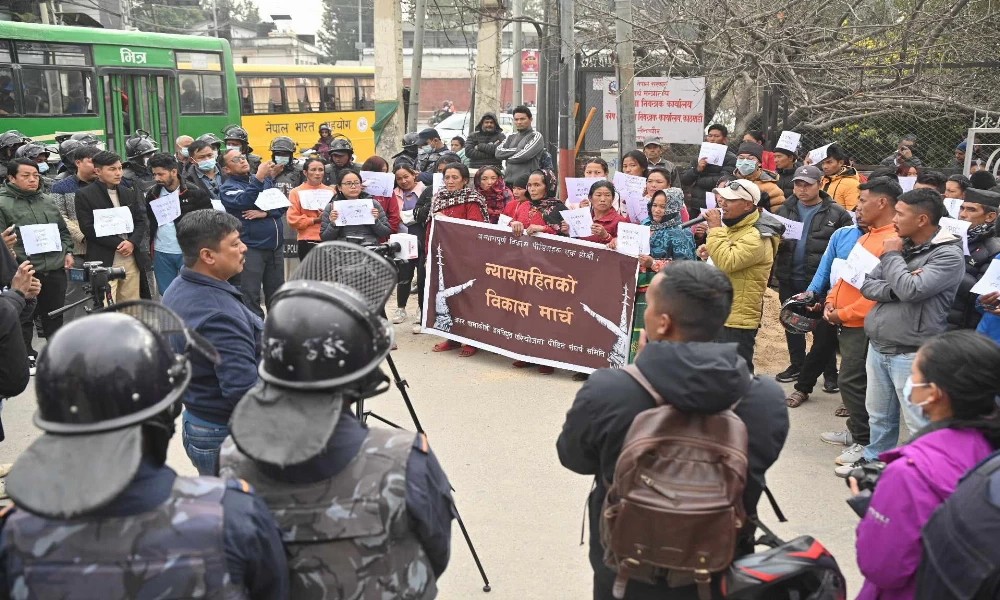Nepal is yet to see an outbreak of coronavirus cases despite being so close and connected to China -- the source of the pandemic. The country has recorded only one imported case of the deadly virus, and that too almost two months ago. Not a single locally transmitted case has been reported so far.
However, fearing a sudden outbreak of coronavirus cases, the government of Nepal has already imposed a semi lockdown. Long-distance public transports have ground to a halt. Movie theaters and gyms have shut down. Non-essential services have been stopped. And people are mostly staying indoors.
Afraid of being infected with the deadly virus, people are buying hand sanitizers at an unprecedent scale. Supermarkets, malls, medical halls and even grocery shops have cleared their stocks of sanitizer, turning away customers.
As Nepali people face a shortage of hand sanitizers amidst the coronavirus crisis, a municipality in the Kathmandu Valley has turned to an indigenous method of manufacturing the gel that could effectively disinfect our hands.
As Nepali people face a shortage of hand sanitizers amidst the coronavirus crisis, a municipality in the Kathmandu Valley has turned to an indigenous method of manufacturing the gel that could effectively disinfect our hands. The Office of Lalitpur Metropolitan City is now promoting home-made hand sanitizers laced with liquor produced by local indigenous Newar people.
In Lalitpur, many Newar families brew alcohol at home. Some even brew alcohol for commercial purpose. This local indigenous knowledge of brewing liquor has come handy in producing home-made hand sanitizers at a time of crisis.
It all started when people complained with the municipality office about the lack of hand sanitizers at malls, supermarkets, marts and department stores. Raju Maharjan, Personal Assistant of Lalitpur's mayor Chiribabu Maharjan, contacted Nepal Academy of Science and Technology (NAST) to find out if they could produce hand sanitizers at home.
In Lalitpur, many Newar families brew alcohol at home. Some even brew alcohol for commercial purpose. This local indigenous knowledge of brewing liquor has come handy in producing home-made hand sanitizers at a time of crisis.
NAST's Vice Chancellor Sunil Babu Shrestha showed a sample of locally manufactured hand sanitizers. NAST had used ethanol in this sample, but Maharjan wanted to produce hand sanitizers using some substance that is easily available.
Maharjan asked: "What if there is a shortage of ethanol in the market?"
Then, Shrestha told him that hand sanitizers can be manufactured by vaporizing alcohol. The next day, Maharjan went to the NAST office carrying seven liters of liquor produced by local Newari people.
NAST and Lalitpur Metropolitan City office jointly produced hand sanitizers using local liquor. Last week, a sample of alcohol-laced sanitizer was exhibited at a program in Kathmandu, where representatives of the World Health Organization (WHO) applied it on their hands to see if it was up to the standards.
The Lalitpur Metropolitan City office is now preparing to make home-made sanitizers available in the local market. A 100 ml bottle of this sanitizer will not cost more than Rs 150.









